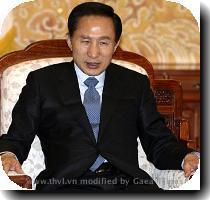Pregnant SKoreans desperate amid abortion crackdown in former ‘Abortion Republic’
By Sangwon Yoon, APWednesday, March 17, 2010
SKorean women caught in abortion limbo
SEOUL, South Korea — Having a third child wasn’t in Mrs. Kim’s plans. She and her husband are already struggling to get by.
But getting an abortion, once so routine here that South Korea was known as “Abortion Republic,” is no longer easy. In recent weeks, the government has begun enforcing a long-ignored ban on the procedure for the first time.
It took Mrs. Kim 10 tries to find a doctor willing to perform an abortion, and he’s demanding nearly $1,000 in cash. To scrape together the money, the six-weeks pregnant woman took a second job cleaning an office building overnight for a few weeks.
“I can barely afford to have an abortion. How can I afford to raise and put a kid through college?” the 31-year-old secretary said, dunking a rag into a bucket of water. She asked to be identified only by her surname due to the sensitivity of the matter.
South Korea outlawed abortion in 1953 with exceptions for rape, incest or severe genetic disorders. Yet authorities turned a blind eye for decades, as the nation sought to tame population growth. For $300, women could get an abortion at almost any OB-GYN clinic.
That changed earlier this year, a shift that pro-choice activists say was motivated by the country’s plunging birthrate. The Ministry of Health and Welfare even announced it would set up a hot line for citizens to report on law-breaking doctors or pregnant women.
Suddenly, the long-hidden topic of abortion has become the focus of a heated public debate while doctors who carry them out have gone underground.
Hospitals have stopped openly advertising abortions. One gynecologist in eastern Seoul says she turns away patients who call, but quietly accepts them if they show up in person. Another in the city’s fashionable Apgujeong district asks for up to $2,000 “to help cover the legal risks,” and requires patients to sign a waiver freeing the doctor from liability.
Last month, a woman gave birth and suffocated her newborn to death in a motel room, Seoul police said.
“In the current social mood against abortions, I knew that I could get arrested trying to get one, but also that I couldn’t afford one anyway because prices have risen so much,” the woman said, according to a police statement.
The procedure was seen for years as a way to help curb high fertility rates, sociologist Cho Byong-hee said.
“The government aggressively propagated the notion that having fewer kids would lead to prosperity, without any public debates or discussions over the ethics of abortion,” said Cho, a professor at Seoul National University.
Birth control is still a taboo in South Korea, a society shaped by a Confucian heritage that prizes chastity. Lack of education on birth control means too many unplanned pregnancies, said women’s rights activist Kim Doo-na.
The stigma of being a single mother in a society that treats them as outcasts pushes many to abortion when they do fall pregnant, she said.
An estimated 350,000 abortions were carried out in South Korea in 2005, or about 30 in every 1,000 women between ages 15 to 44, in the latest available figures. In comparison, there were about 20 abortions per 1,000 women in the U.S. that year.
The previous, unspoken policy on abortion may have been too successful, Cho said. Today, South Korea has the world’s lowest birthrate: 1.15 children per mother in 2009, according to the Korean Statistical Information Service.
“We’re a developed nation now, but people still believe that having more kids means less financial stability,” he said.
Concerned about the low birthrate, President Lee Myung-bak’s administration set up a task force in November to encourage childbirth, enacting tax breaks, subsidies for medical fees and childrearing expenses and steps to improve childcare.
The government also made clear the ban on abortion would be strictly enforced, though denying any connection to the effort to raise the birthrate. Doctors risk a $2,000 fine, two years in prison and their medical license; women face the same fine and a year in jail if caught three times.
“Our plan against illegal abortions is entirely separate from our low birthrate countermeasures,” said Rhee Won-hee, chief of the health ministry’s Family Support Division. “The comprehensive plan is to fight rampant disrespect for the sanctity of life.”
Some say the initiative has spawned an anti-abortion witch hunt. The Korean Association of Obstetricians and Gynecologists berated the initiative for treating OB-GYNs as potential criminals.
Last month, the anti-abortion group Pro-Life Doctors reported three hospitals for performing illegal abortions. The group’s founder, Dr. Shim Sang-duk, said he became an outcast for “ratting friends out” and has received death threats from doctors on the other side of the debate.
Kim Hee-young of the nonprofit Korea Womenlink group called the crackdown a quick fix to a much deeper problem: the status of women in patriarchal South Korea.
“Women aren’t getting abortions because they don’t want children but because the country has yet to create an environment conducive to raising children,” said Ran Hee, who directs human rights policy at Korea Women’s Hotline.
As she sacrifices sleep to save up for her abortion, Mrs. Kim says she is trying to safeguard her family’s well-being by terminating the pregnancy.
“Our current income is just enough to feed four and educate the two,” she said. “Activists and policymakers can debate all they want, but I’m the one sweeping floors to kill my baby.”
Associated Press writer Hongkeun Jeon contributed to this report.
Tags: Asia, Birth Rates, Demographics, East Asia, Health Statistics, Lee Myung-bak, Seoul, South Korea, Violent Crime, Women's Health

